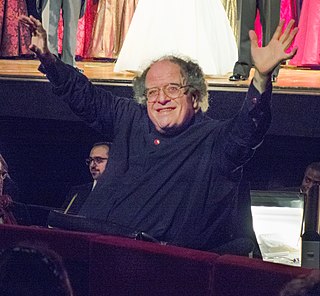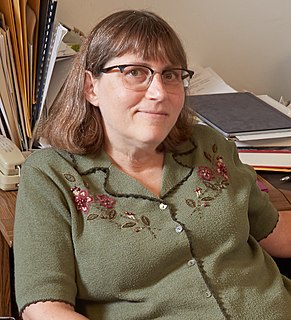A Quote by Andrea Bocelli
I was an agnostic until I realized that I had to choose between God and fate. The idea that humanity and nature are the result of fate was not convincing at all. I find the presence of God everywhere.
Related Quotes
Fate is a misplaced retreat. Many people rationalize an unexplained event as fate and shrug their shoulders when it occurs. But that is not what fate is. The world operates as a series of circles that are invisible, for they extend to the upper air. Fate is where these circles cut to earth. Since we cannot see them, do not know their content, and have no sense of their width, it is impossible to predict when these cuts will slice into our reality. When this happens, we call it fate. Fate is not a chance event but one that is inevitable, we are simply blind to its nature and time.
There is a great ladder of religious cruelty, and, of its many rungs, three are the most important. People used to make human sacrifices to their god, perhaps even sacrificing those they loved the best ... Then, during the moral epoch of humanity, people sacrificed the strongest instincts they had, their 'nature,' to their god... Finally: what was left to be sacrificed? ... Didn't people have to sacrifice God himself and worship rocks, stupidity, gravity, fate, or nothingness out of sheer cruelty to themselves?
The best thing is to go from nature's God dawn to nature; and if you once get to nature's God, and believe Him, and love Him, it is surprising how easy it is to hear music in the waves, and songs in the wild whisperings of the winds; to see God everywhere in the stones, in the rocks, in the rippling brooks, and hear Him everywhere, in the lowing of cattle, in the rolling of thunder, and in the fury of tempests. Get Christ first, put Him in the right place, and you will find Him to be the wisdom of God in your own experience.
The Greek idea of fate is moira, which means "portion." Fate rules a portion of your life. But there is more to life than just fate. There is also genetics, environment, economics, and so on. So it's not all written in the book before you get here, such that you don't have to do anything. That's fatalism.
A Christian should know that God is a Creator, that God is an entity that is all-powerful and all knowledgeable, God is everywhere and God is an entity filled with grace, love, compassion and forgiveness, that Jesus is the son of God and Jesus came on earth to explain to people in a very revolutionary way the nature of God, that God was not a stern judge who was keeping track of 600 or so rules and regulations that you had to keep in order to be acceptable to God.




































